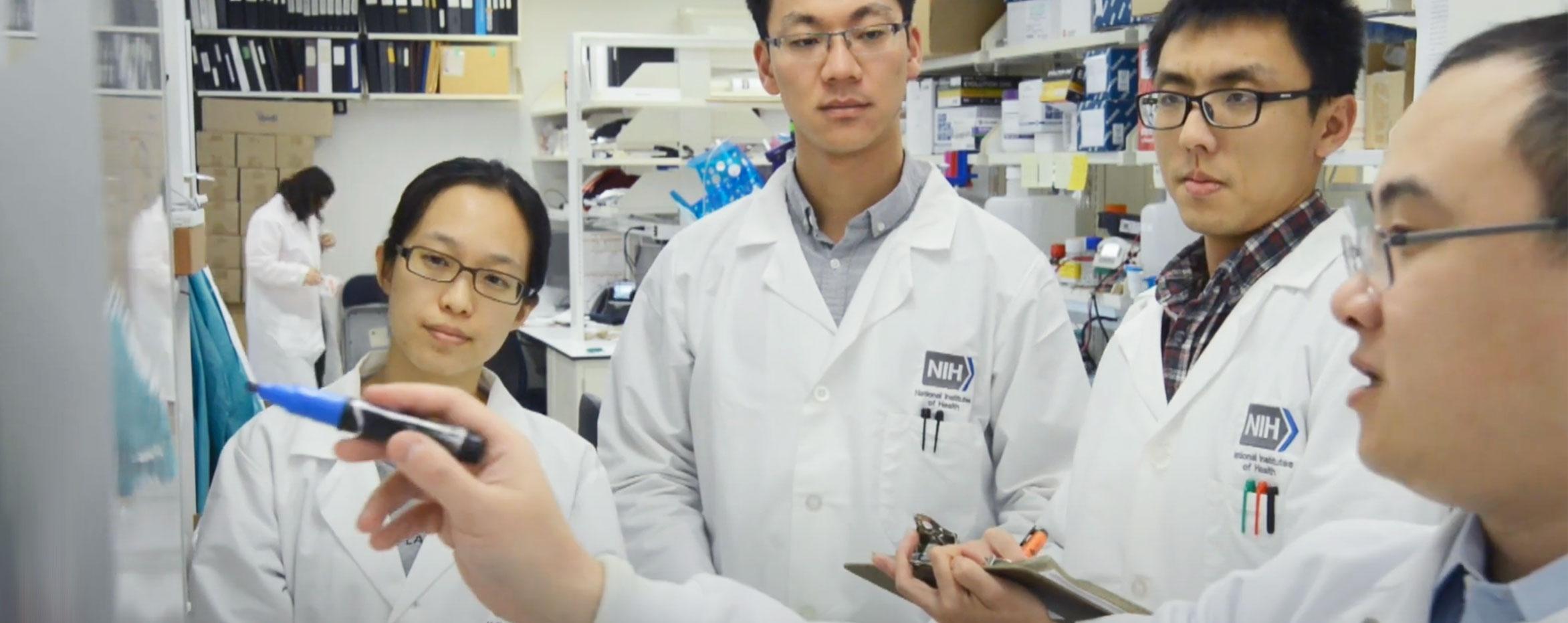Mentoring the next generation of scientists and clinicians is a priority at the Neuro-Oncology Branch (NOB). The Branch offers a variety of training opportunities, including summer internships, postbaccalaureate programs, a graduate partnership program, postdoctoral training programs, research fellowships, and clinical fellowships. Many NOB trainees go on to receive awards and recognition for their outstanding work. Read more about the available training programs below.
The Postdoctoral Training in the NIH Intramural Research Program provides those who have recently received a doctoral degree the opportunity to come to the NIH and complete up to five years of postdoctoral research. After reaching this five-year limit, individuals can spend up to an additional three years at the NIH as a research fellow—an appointment that makes them NIH employees.
The Intramural Continuing Umbrella of Research Experiences (iCURE) program recruits cohorts of students and scientists from diverse backgrounds. iCURE strongly encourages the participation of individuals from underrepresented populations and is aligned with NCI’s interest in diversity. Scholars will enjoy opportunities to work closely with world-class researchers at NCI, in addition to professional and career development activities.
The Graduate Partnerships Program (GPP) provides graduate students with the opportunity to conduct all or part of their dissertation research in the resource-rich NIH environment. Participants enjoy the academic environment of a university, the extensive research resources of NIH, and the breadth and depth of the research programs of both the host university and the NIH Intramural Research Program.
The Postbaccalaureate Intramural Research Training Award Program (Postbac IRTA/CRTA) is a biomedical research program that enables recent college graduates who are planning to apply to graduate or professional school to spend one or two years working with investigators at NIH.
The NIH Clinical Electives Program in Neuro-Oncology emphasizes the important connection between research and patient care in neuro-oncology. Medical students who are accepted into the program will participate in the evaluation of neuro-oncology patients in the clinical setting, learn about clinical research trial conduct, attend clinical care and research conferences, and participate in weekly clinical and laboratory meetings. They will also participate in the workup, evaluation, and treatment planning for patients they see.
Program objectives include:
- Preparing trainees to deliver state-of-the-art diagnostic and consultative services in the field of neuro-oncology
- Helping trainees to develop familiarity with rare central nervous system (CNS) tumors and an appreciation for the opportunities and challenges of pre-clinical and clinical research
- Introducing trainees to the science and medicine of neuro-oncology and inspiring them to pursue a lifelong career of academic inquiry
The electives program offers an opportunity to learn clinical research techniques, as well as participate in evaluating and treating patients with CNS diseases. Although laboratory research is closely coordinated with clinical activities in the NOB, students will not engage in laboratory investigations during this course. However, students have opportunities to present research informally in the clinic, at monthly journal clubs, and through communications and publications, such as case reports and journal reviews.
To apply, visit the Clinical Electives Program: Neuro-Oncology website. For further questions, email NCINeuroOncology@mail.nih.gov.
